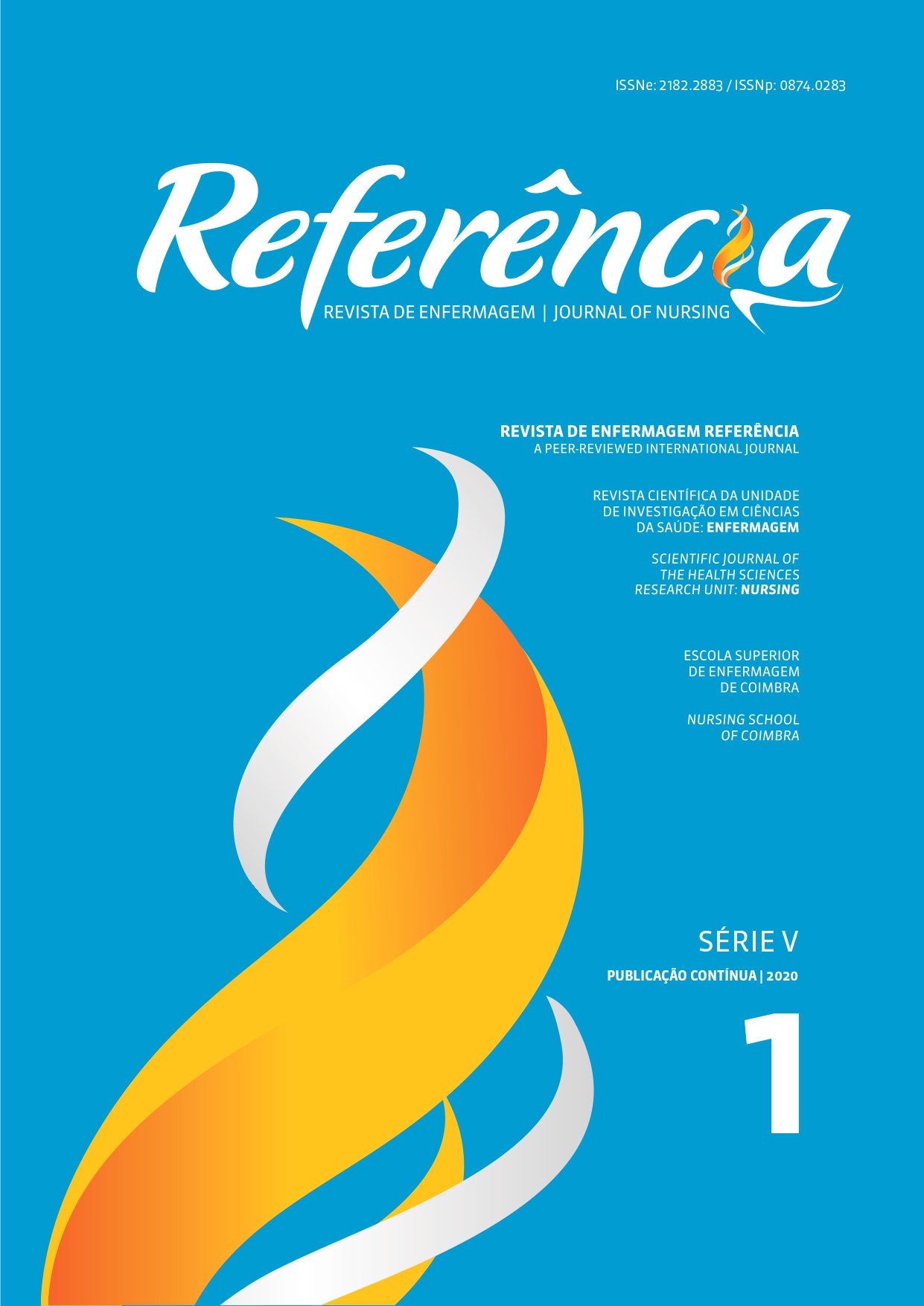Suffering in primary care nurses
DOI:
https://doi.org/10.12707/RIV19096Keywords:
mental suffering, nurses, primary health careAbstract
Background: Suffering in nurses is associated with the delivery of care to patients in suffering and factors related to the working conditions. It is a multidimensional experience that occurs in situations of loss, damage, or threat to human integrity.
Objective: To compare the mean scores in the dimensions of suffering (Emotional Pain, Relational Loss, and Avoidance) based on the sociodemographic and professional variables of nurses.
Methodology: A descriptive and cross-sectional study with a quantitative approach was conducted with a sample of 100 nurses. A self-administered questionnaire was applied, as well as the Caregiver Grief Scale for assessing suffering.
Results: Women with children, with a partner, without specialization in nursing, and with more years of service had higher mean scores of suffering. In men, the highest mean scores were found in nurses without children, without a partner, with specialization in nursing, and with more years of service.
Conclusion: Nurses showed higher mean scores of suffering in the dimension of Emotional Pain, followed by Relational Loss, and Avoidance, and suffering was higher among women.
Downloads
References
Adwan, J. Z. (2014). Pediatric nurses’ grief experience, burnout and job satisfaction. Journal of Pediatric Nursing, 29(4), 329-336. doi:10.1016/j.pedn.2014.01.0
Barlem, E. L., & Ramos, F. R. (2015). Constructing a theoretical model of moral distress. Nursing Ethics, 22(5), 608-6015. doi:10.1177/0969733014551595
Caçador, B. S., Ramos, F. R. & Brito, M. J. (2017). Processo de angústia/sofrimento moral em enfermeiros da estratégia saúde da família. Enfermagem em Foco, 7(3-4), 22-26. doi:10.21675/2357-707X.2016.v7.n3/4.910
Coelho, A., Brito, M., & Barbosa, A. (2017). Caregiver anticipatory grief: Phenomenology, assessment and clinical interventions. Current Opinion in Supportive and Palliative Care, 12(1), 52-57. doi:10.1097/SPC.0000000000000321
Coelho, M. E., & Ferreira, A. C. (2015). Cuidados paliativos: Narrativas do sofrimento na escuta do outro. Revista Bioética, 2, 340. doi:10.1590/1983-80422015232073
Feneli, R., Gonçalves, T., & Azevedo dos Santos, S. (2006). A dor e o sofrimento - uma conexão entre o pensar filosófico e espiritual. Enfermeria Global, 9, 1-12. Recuperado de https://digitum.um.es/digitum/bitstream/10201/24149/3/A%20dor%20e%20o%20sofrimento%20-%20uma%20conex%C3%A3o%20entre%20o%20pensar%20filos%C3%B3fico%20e%20o%20espiritual.pdf
Krikorian, A., Limonero, J. T., Román, J. P., Vargas, J. J., & Palacio, C. (2014). Predictors of suffering in advanced cancer. The American Journal of Hospice & Palliative Care, 31(5), 534-542. doi:10.1177/1049909113494092
Lusignani, M., Gianni, M. L., Re, L. G., & Buffon, M. L. (2016). Moral distress among nurses in medical, surgical and intensive-care units. Journal of Nursing Management, 25(6), 477-485. doi:10.1111/jonm.12431
McCarthy, J., & Gastmans, C. (2015). Moral distress: a review of the argument-based nursing ethics literature. Nursing Ethics, 22(1), 131–152. doi:10.1177/096973301455713
Meichsner, F., Schinköthe, D., & Wilz, G. (2016). The caregiver grief scale: Development, exploratory and confirmatory factor analysis, and validation. Clinical Gerontologist, 39(4), 342-361. doi:10.1080/07317115.2015.1121947
Ramos, F. R., Barth, P. O., Schneider, A. M., Cabral, A. S., Reinaldo, J. S. (2016). Consequências do sofrimento moral emenfermeiros: Revisão integrativa. Cogitare Enfermagem, 21(2), 01-13. Recuperado de https://www.researchgate.net/publication/ 305313252_CONSEQUENCIAS_DO_SOFRIMENTO_MORAL_EM_ENFERMEIROS_REVISAO_INTEGRATIVA
Regulamento nº 128/2011, de 18 de fevereiro. Diário da República, 35/2011-IISérie. Ministério da Saúde. Lisboa, Portugal.
Rodrigues, J. O., & Silva, E. A. (2016). O prazer e o sofrimento dos homens no trabalho em serviços de saúde. Revista de Enfermagem UFPE on line, 10(7), 2544-2554. doi:10.5205/reuol.9106-80230-1-SM1007201631
Schaefer, R. (2017). Sofrimento moral: avaliação de risco em enfermeiros (Tese de doutoramento). Universidade Católica Portuguesa, Lisboa. Recuperado de https://repositorio.ucp.pt/bitstream/10400.14/24202/1/PhD_Rafaela%20Schaefer.pdf
Schaefer, R., & Vieira, M. (2015). Competência ética como recurso de enfrentamento do sofrimento moral em enfermagem. Texto & Contexto Enfermagem, 24(2), 563-573. Disponível em http://www.scielo.br/pdf/tce/v24n2/pt_0104-0707-tce-24-02-00563.pdf
Trautmann, J., Epstein, E., Rovnyak, V., & Snyder, A. (2015). Relationships among moral distress, level of practice independence, and intent to leave of nurse practitioners in emergency departments: Results from a national survey. Advanced Emergency Nursing Journal, 37(2), 134-145. doi:10.1097/TME.0000000000000060
Vasconcelos-Raposo, J., Pires, L. M., Teixeira, C. M., & Monteiro, M. J. (no prelo). Validação da Caregiver Grief Scale para enfermeiros. Avaliação Psicológica, 2020.
Viana, A. (2014). Sofrimento experienciado pelo enfermeiro quando cuida o doente em fim de vida com dor não controlada (Dissertação de mestrado). Instituto Politécnico de Viana do Castelo. Recuperado de http://repositorio.ipvc.pt/bitstream/20.500.11960/1237/1/Aurora_Viana.pdf
Woods, M., Rodgers, V., Towers, A., & Grow, S. L. (2015). Researching moral distress among New Zealand nurses: A national survey. Nursing Ethics, 22(1), 117-130. doi:10.1177/0969733014542679
Xiaoyan, W., Yufang, Z., Lifeng, C., & Congcong, S. (2016). Moral disess and its influencing factors: A crossectional study in China. Nursing Ethics, 25(4), 470-480. doi:10.1177/0969733016658792






















